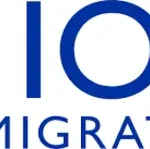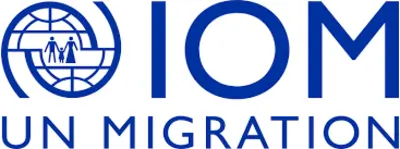
International Organization for Migration
The International Organisation for Migration Regional Office for Southern Africa, is implementing a regional programme that seeks to improve the quality of life and SRH and HIV outcomes among migrants, young people and other key populations and host communities in Southern Africa. The programme covers seven countries: Eswatini, Lesotho, Malawi, Mozambique, Zambia, Zimbabwe and South Africa, with possible extension to Zimbabwe. The program is implemented in partnership with Save the Children International and local NGOs as implementing partners and in collaboration with relevant government departments. As part of the efforts to strengthen programme monitoring and evaluation, the programme has developed a regional programme information management system using the open source web-based District Health Information System version 2 (DHIS2) software. The system is hosted on the IOM Server in Pretoria. Data are generated at all levels of the programme implementation, with majority data routinely collected and entered into DHIS2 database that is configured on Tablets by community-based peer educators data. This development has facilitated the integration of the reporting systems for programme indicators into DHIS2. While through DHIS2 routine data have been made available at the district, regional and national levels, routine maintenance, data quality and the use of data for timely decision-making remains a key priority area for the SRHR-HIV Programme’s success. For effective interventions based on evidence, the availability of data in time and its analysis and interpretation is crucial.
To that effect, the IOM Regional Office for Southern Africa seeks to recruit a highly qualified Regional Information Management Officer, for an initial 12-months period to assist/support the regional and country implementing teams in DHIS2 module maintenance to strengthen evidence-based measurable interventions. This support includes the provision of technical support for the maintenance, management and updating of the DHIS2 database, navigating the online/offline mode interface, data analysis and visualisation, import and export of data, capacity building, reporting and dissemination of quality health data and information. The candidate will work within the strategic framework of the migration health programme and Regional Migration Data Hub (RMDHub) to strengthen data management, monitoring, and evaluation in health. The candidate will be stationed in the IOM Regional Office in Pretoria to provide support to the SRHR-HIV programme DHIS2 system and relevant database architecture of the RMDHub and regional office at-large.
Under the overall supervision of the Regional Director IOM Southern Africa Regional Office, administrative supervision by the Chief of Mission, Zimbabwe, and technical supervision by the Regional Migration Health Coordinator, the Regional Information Management Officer will undertake the following tasks:
Responsibilities and Accountabilities
- Maintain, manage and update/upgrade the programme information management system (using DHIS2), analyse data and generate statistical reports to inform programme management decision making and implementation. The candidate will serve as the DHIS2 expert for the migration health programme and performs daily database maintenance and user management functions.
- Support the project team in adopting the programme information management system into daily work processes across the seven project countries and providing technical support to all DHIS2 users within the team. This role involves establishing new configurations/modules as well as effectively implementing existing ones to collect, analyse and disseminate data.
- Develop/review/update guidelines and standard operating procedures (SOPs) for the users at the different levels of the system including implementing partners, community volunteers, and community-based organizations
- Develop training materials, plans and conduct trainings for system users at different levels of project implementation.
- Work with the M&E team and provide hands on capacity building for software maintenance and ad-hoc customizations as needed.
- Work with the M&E and Regional Migration Data Hub teams on improving data quality and promoting data use at all levels: preparing the data quality assurance plan and data use framework for different levels of the project cycle.
- Identify strengths and weakness of implementation of the programme information management system at different levels of implementation and provide on the job training to address the weakness, as necessary
- Perform such other duties as may be assigned.
Qualifications and Experience:
University degree in Statistics, Social Sciences, Computer Science, Computer/Software Engineering, Information Systems Technology or a related field with a minimum of four years of professional experience in health information management, health statistics field, monitoring and evaluation or related areas
Experience
- Skills and expertise on management of information management software systems, including implementation at different levels and institutions in the Southern African context.
- Demonstrated capacity to support and solve technical problems experienced in large information management systems and fix them in real time.
- Ability to work closely with local NGO partners and government (health) and other stakeholders especially who are working in the areas of DHIS2 implementation.
Skills
- Experiences in strengthening of Health Management Information System and guiding the use of information at different levels of health system including hospital and institutional level is essential
- Expertise in DHIS2 management and system support is strongly desirable.
- Experience in communication and establish rapport with project teams and understating of the government health ministries’ DHIS2 context would be an asset.
- Computer and information technology literacy, including demonstrated expertise in Microsoft Excel, Word, PowerPoint, statistical packages and GIS would be an asset.
- Experience in health information system strengthening programmes would be required.
- Demonstrated capacity to work both in a self-directed manner and collaboratively with other staff and stakeholders;
- Ability to work independently and as a team member.
Languages
Proficiency in written and spoken English.
Required Competencies
The incumbent is expected to demonstrate the following values and competencies:
Values
- All IOM staff members must abide by and demonstrate these five values:
- Inclusion and respect for diversity: Respects and promotes individual and cultural differences. Encourages diversity and inclusion.
- Integrity and transparency: Maintains high ethical standards and acts in a manner consistent with organizational principles/rules and standards of conduct.
- Professionalism: Demonstrates ability to work in a composed, competent and committed manner and exercises careful judgment in meeting day-to-day challenges.
- Courage: Demonstrates willingness to take a stand on issues of importance.
- Empathy: Shows compassion for others, makes people feel safe, respected, and fairly treated
Core Competencies – Behavioural indicators – Level 2
- Teamwork: Develops and promotes effective collaboration within and across units to achieve shared goals and optimize results.
- Delivering results: Produces and delivers quality results in a service-oriented and timely manner. Is action oriented and committed to achieving agreed outcomes.
- Managing and sharing knowledge: Continuously seeks to learn, share knowledge and innovate.
- Accountability: Takes ownership for achieving the Organization’s priorities and assumes responsibility for own actions and delegated work.
- Communication: Encourages and contributes to clear and open communication. Explains complex matters in an informative, inspiring and motivational way.
Behavioural
- Takes responsibility and manages constructive criticism;
- Works effectively with all clients and stakeholders;
- Promotes continuous learning; communicates clearly;
- Takes initiative and drives high levels of performance management;
- Plans work, anticipates risks, and sets goals within area of responsibility;
- Displays mastery of subject matter;
- Contributes to a collegial team environment;
- Creates a respectful office environment free of harassment and retaliation, and promotes the prevention of sexual exploitation and abuse (PSEA);
- Incorporates gender-related needs, perspectives, and concerns, and promotes equal gender participation;
- Displays awareness of relevant technological solutions;
- Works with internal and external stakeholders to meet resource needs of IOM.
Technical
- Delivers on set objectives in hardship situations;
- Effectively coordinates actions with other implementing partners;
- Works effectively with authorities, stakeholders, beneficiaries and the broader community to advance global objectives.
Other
- Appointment will be subject to certification that the candidate is medically fit for appointment.
- No late applications will be accepted.
How to apply
Interested candidates are invited to submit their applications to [email protected] by 22 January 2024 at the latest, referring to this advertisement.
Only shortlisted candidates will be contacted.
Posting period:
From 08 January 2024 to 22 January 2024
Deadline: 22-Jan-24

